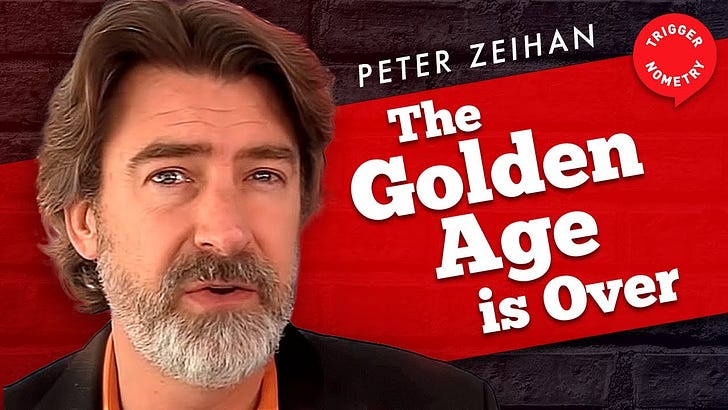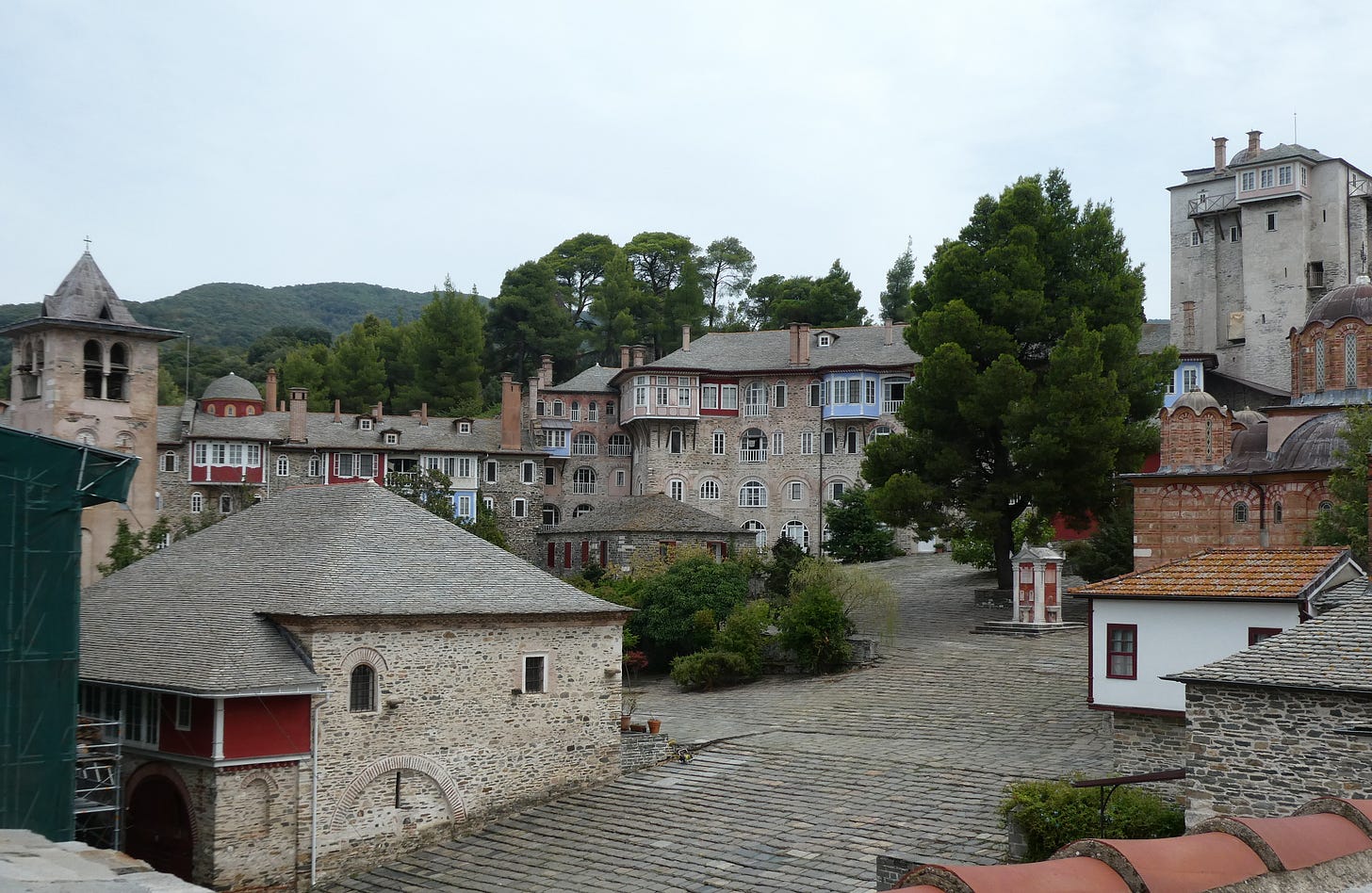I’ve returned from a five-day pilgrimage to Mount Athos to re-enter the world as it turns towards autumn. I must say that re-entering the world after a stint in the Monastic Republic, in which time appears not to function as it does elsewhere, is particularly hard work. After a few days in a place like this, you bring another reality back with you:
The architecture is beautiful and ancient, of course, but that’s not really the point. The point is what happens to you while you’re amongst it. I’ll probably write something about this soon. Before that, I’m preparing for an event tomorrow up at Benburb Priory, in which I’ll be in conversation with Paul Vander Klay and Calvin Robinson. After that, the next essay in my series for subscribers will be arriving in the next week or so, once I am fully back into the swing of The World. Though it’s possible that may never quite happen.
Anyway: for now, it’s time for the monthly discussion forum in which I hand over the reins to my readers. As ever, please use the space to talk about any subject that relates to my writing here. As a prompt, you might be interested in the film at the top of this post, which I watched before I went away, in which number-crunching economist type Peter Zeihan explains why he thinks everything is about to come crashing down. Amongst his predictions, delivered with an excitable zeal which belies their context, are the coming disintegration of the economies of Germany and China, global demographic collapse, a rise in famines and a collapse in global supply chains, and the ongoing disappearance of the workforce across all industries.
What’s interesting to me about this kind of presentation is often what is missing. In this case I heard nothing at all, for example, about the future of Africa and nothing of any seriousness about climate change or ecological degradation. More to the point, it’s very much an economist’s worldview, which means it is hemmed in by the usual limitations. It’s possible that what constitutes a good human life may amount to more than growth in material wealth, but you won’t come across that notion here. It’s a machinist’s analysis of the failures of the Machine.
Still, it’s a usefully sobering and strangely bracing watch, and it makes me wonder about how others are preparing for what will be a coming hard winter - especially in Europe - but also clearly a very tough immediate future. It’s wasn’t so long ago that ‘prepping’ for such a time, either materially or psychologically, was sneered at at best. Now the sneering seems to have abated. The collapse I began writing about in 2009, and which others had been writing about for decades before that, is now upon us. Where does that take you - and how are you readying for it?






I think an important art in this time is the ability to be sober and prepared in response to the real risks of collapse, and at the same time to live spiritually with our hearts centered more on the eternal than on that which is passing.
For our family it means a habit of providing our own food and firewood from the land, and keeping a substantial surplus on hand. We're very fortunate to have a land base and a lifestyle that's already quite resilient. Yet, we spend about 2 hours per day in liturgical prayer, which is terribly inefficient from a materialist's prepping standpoint. It amounts to 28 hours of 'wasted' adult labor per week. However, it' what we acquire in prayer, not the presence of chicken and lamb in the freezer or grain in the pantry that gives us peace and strength in the face of reports (real or imagined) of war, famine and collapse on the horizon.
Truth be told, I'd rather starve with a heart rightly aligned to God than to keep my body alive and 'survive' by doing harm to others. I try to hold all the preparation lightly - we might be called to give aid to others beyond our means and suffer in common with the rest of our local community.
I'm a little surprised that I've not seen much about befriending neighbors and getting to know them and work with them. What about extended family? Church communities? Cultivating relationships seems as important, if not more important, than growing food and storing wood. Food and fuel are, obviously, important, but we all need more than that to survive. It seems to me that a group of people pooling their skills and resources will be the way to maintain and build a good place where you and your loved ones can flourish.
And, of course, none of us has as much power or control as we like to think. I think Jack hit on the most important thing - learning to trust in God's providence.